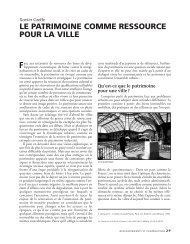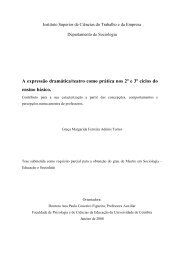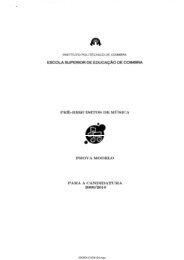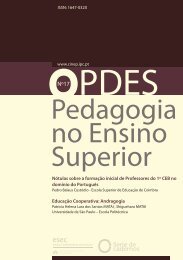BALANCING FAMILY AND WORK ROLES : EXPECTATIONS OF ...
BALANCING FAMILY AND WORK ROLES : EXPECTATIONS OF ...
BALANCING FAMILY AND WORK ROLES : EXPECTATIONS OF ...
You also want an ePaper? Increase the reach of your titles
YUMPU automatically turns print PDFs into web optimized ePapers that Google loves.
work) tend to present a more anarchic thinking style than the students who value work morethan marriage, concede equal importance to work and marriage or put the highest value onwork. Hypothesis 2.2. is, in that way, partially confirmed.Table 8. Anarchic thinking style : Frequencies, means and standard deviations accordingto importance attributed to marriage and employment.Marriage and employmentAnarchic Thinking StyleStd.MeanNDeviationMarriage the most important 22,21 2,57 72Marriage more important than employment 21,70 2,45 230Marriage and employment equally important 21,45 2,12 273Employment more important than marriage 20,50 3,05 32Employment most important 20,73 2,72 44Total 21,52 2,41 651No difference is found on the work and family orientation and on the adult selfperceptiondimensions, questioning hypotheses 3.2 and 4.2.5. DISCUSSIONGender differences confirm that female university students, more than their malecounterparts, foresee themselves as performing a double role, both in family andprofissional contexts. In the family context, this role remains traditional. Results point out theimportance of the dimension of nurturing and household management for women’s selfdefinition.In the work context, the traditional emphasis put on male professional status isalso shared by males and females : the latter are more concerned about their partner’sstatus than the former, who describe themselves as more competitive. Although genderstereotypedroles still remain in society, a new representation of woman emerges in thework domain. Employment concerns, orientation towards work, the value put on effort andmastery of the task more than on interpersonal relationships (indifference toward peers) areshared by women and men equally. Both genders include in their self-evaluation, theperception of their suitability as family provider and their professional competence.As expected, change in social roles is associated with important psychologicalcharacteristics. Although longer permanence of young people in the « nest » should13 http://aifref.uqam.ca – Actes du VIIIe Congrès de l’AIFREF
















